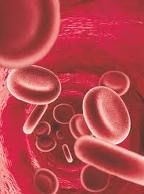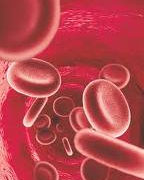Blood Tests for Thyroid are Inaccurate
 Blood tests for thyroid function measure the amount of TSH, T4, and T3 in the bloodstream. But thyroid hormones don’t operate within the bloodstream; the action takes place in the cells themselves. Blood tests are measuring how much thyroid hormone is swimming around in the blood stream, but not what is in the cell.
Blood tests for thyroid function measure the amount of TSH, T4, and T3 in the bloodstream. But thyroid hormones don’t operate within the bloodstream; the action takes place in the cells themselves. Blood tests are measuring how much thyroid hormone is swimming around in the blood stream, but not what is in the cell.
Traditional medical professionals know that thyroid blood tests are less than perfect.
The Journal of Clinical Psychiatry has reported: Laboratory blood tests for thyroid may be inaccurate for many who get tested for hypothyroid disorder.
Compounding the problem of using standard blood tests to diagnose hypothyroid is the inability of doctors to agree on the laboratory parameters. According to the American Association of Clinical Endocrinologists (AACE) guidelines, doctors have typically been basing their diagnoses on the “normal” range for the TSH test. The typical normal TSH levels at most laboratories, has fallen between the 0.5 to 5.0 range. Those with a TSH below .5 are considered to have too much thyroid hormone (hyperthyroid). Those whose test results are above 5 are considered to have too little thyroid (hypothyroid). However, it’s not uncommon to find doctors, including endocrinologists (thyroid specialist), who withhold the diagnoses and treatment of hypothyroid until a patient’s TSH tests read considerably above 10. While some doctors believe that anyone who has a TSH above 2 and complains of hypothyroid symptoms (depression, fatigue, brain fog, etc.) should be placed on thyroid hormone. While doctors often debate which parameters or numbers are correct, millions of low thyroid patients are not properly diagnosed and treated.
“You have all the symptoms of hypothyroid but your blood work looks fine.”
Patients often relate that they, and sometimes their doctors, suspect a thyroid problem only to have their blood work return normal.
 Doctors are typically reluctant to prescribe thyroid replacement therapy without a definitive test that reveals true hypothyroid. They’re afraid that by doing so, they would jeopardize the health of the patient. And true, excess thyroid can cause several unwanted health problems, including elevated heart rate, rapid pulse, and accelerated bone loss.
Doctors are typically reluctant to prescribe thyroid replacement therapy without a definitive test that reveals true hypothyroid. They’re afraid that by doing so, they would jeopardize the health of the patient. And true, excess thyroid can cause several unwanted health problems, including elevated heart rate, rapid pulse, and accelerated bone loss.
However, millions suffer with symptoms far worse then these when prescription therapy is withheld. Certainly the dangers of thyroid replacement therapy should be a concern. But, if you weigh the pros and cons of administering thyroid replacement therapy to a patient with normal blood tests, yet all the symptoms of hypothyroid, fatigue, anxiety, depression, achy diffuse pain, weight gain, etc., it’s easy to see that withholding therapy should be considered malpractice. This is especially true in light of the fact that many of these patients are taking numerous, potential dangerous drugs, to cover-up the symptoms of hypothyroid; Provigil or Aderall to increase energy, antibiotics for chronic sinus infections, a laxative for constipation, NSAIDs for pain, SSRI medication for depression, Neurontin for tingling in the hands and feet, and perhaps a benzodiazepine like Ativan or Xanax for anxiety.
All of these drugs may cause side effects that may cause further symptoms (poor sleep, fatigue, depression, etc.). It’s not uncommon for my patients to be able to drastically reduce or eventually wean off these very medications once their thyroid disorder is corrected.
Call our office today to learn about the proper lab work, as well as functional testing to do to determine if you are in fact suffering from a thyroid condition. (205) 879-2383
Related Links
Essential Therapeutics Thyroid Jump Start Pack





Leave a Reply
Want to join the discussion?Feel free to contribute!